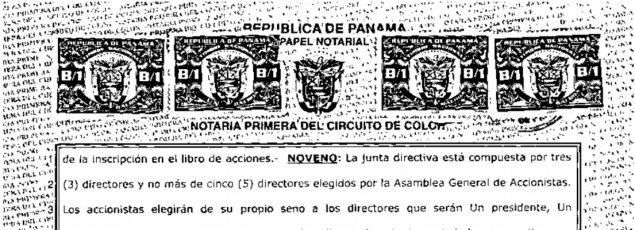At the minimum, rendering Levantine Arabic person names in Spanish (or English) requires transliteration – that is, transcribing a word from one script into the corresponding letters of another. Transliteration can result in multiple spelling variations (e.g. محمد as Mohamad, Mohammad, Muhamad, etc.), a familiar problem for analysts investigating global networks.
Strict Transliteration is Not Always Enough
We need to consider variations in name construction as well as spelling. For example, a Lebanese individual named Ismael Mohammed Youssef could appear on Panamanian documents as Ismael Youssef Abdallah. How can you recognize that this is the same person?
Let’s start with his name as it appears in Lebanon, his country of citizenship.
Names in Lebanon (and much of the Levant) Are Typically Comprised of Three Parts:
- Given name
- Father’s given name
- Father’s surname
In this case, Ismael Mohammed Youssef would be the son of Mohammed Youssef; if he has any siblings, their names also should take the form of given name + Mohammed Youssef.
The challenge arises in locating Ismael in other parts of the world, like Latin America, where language and naming conventions differ. If you search Latin American public records for Ismael Mohammed Youssef (or Mohamad, or Mohammad, to account for spelling variants), you won’t find anything. But that does not necessarily mean he has no presence there. His name may just be constructed differently.
Names in Spanish-speaking Latin America typically are comprised of three parts:
- Given name/s
- Father’s surname
- Mother’s surname
Most of this information is contained in the Lebanese rendering of Ismael’s name. The exception is his mother’s surname, but this is where voter rolls come in handy. The name of Ismael’s mother is disclosed on his Lebanese voter record as Nawf Abdallah. This would make his name Ismael Youssef Abdallah under Latin American naming conventions; and, in fact, searching for Ismael Youssef Abdallah uncovers companies that he controls in Panama and Colombia.
Of course, not every Lebanese person in Panama uses a Latin American name construction. It is most common amongst the local diaspora, who live in the region and speak the language. This makes sense: a businessman who lives and works primarily in the Middle East will be accustomed to his Lebanese name construction and likely to use it, whether he is in Lebanon or Panama.
But bear in mind that name construction could be determined by the structure of the record itself. Perhaps Ismael would have written his name as Ismael Mohammed Youssef, but the forms presented him with separate fields for given name, surname, father’s name, and mother’s name; and his full name was automatically recombined as Ismael Youssef Abdallah after the fact.
Bottom line: transliteration alone is not always enough.
If you want to identify cross-border connections, you may need to translate across name constructions, with reference to individual data like voter rolls.
The public records data that powered this research is available through Sayari Search. If you’re curious how this data could drive insights for your team, or for details on the specific individuals and companies discussed above, please reach out here.



